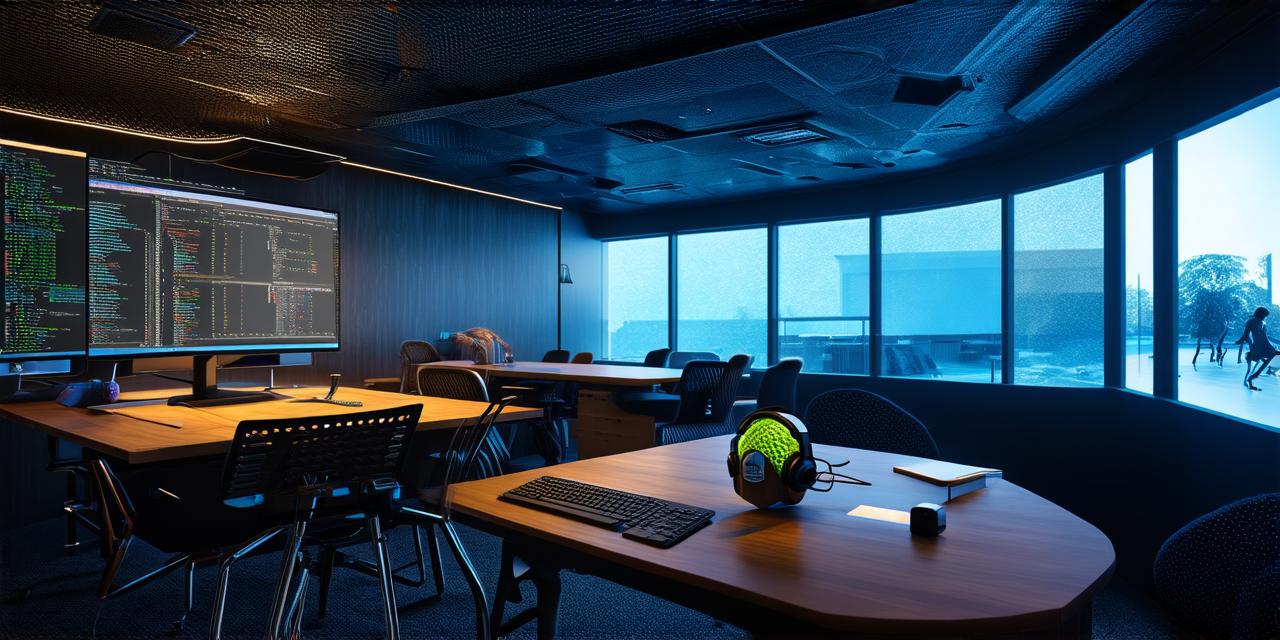1. Knowledge of Programming Languages
Before diving into Unreal Engine development, it is essential to have a solid understanding of programming languages. The engine uses C++ as its primary language, but you can also use Blueprints or C for scripting. If you are new to programming, you may want to start with Python or Java, which have similar syntax and are easier to learn.
1. Familiarity with Unreal Engine Tools and Features
Unreal Engine comes with a wide range of tools and features that can help streamline the development process. These include the World Composition system for building complex levels, Blueprints visual scripting, and the Material Editor for creating custom textures and effects. Familiarity with these tools will save you time and make your work more efficient.
1. Understanding of Game Development Principles
Game development requires a deep understanding of game design principles, including gameplay mechanics, level design, user interface, and animation. These principles are not specific to Unreal Engine but are essential for any game development project. You can learn these principles through online courses, tutorials, or by working on small projects.
1. Familiarity with Version Control
Version control is a crucial tool for game development. It allows you to track changes to your code and collaborate with other developers. Unreal Engine uses Git as its version control system, so it’s essential to have some experience with Git before diving into the engine.
1. Experience with 3D Modeling and Texturing
Unreal Engine supports a wide range of file formats for 3D modeling and texturing, including FBX, Collada, and OBJ. It’s essential to have some experience with 3D modeling software such as Blender or Maya before diving into Unreal Engine development. This will help you create high-quality assets that are optimized for the engine.
1. Knowledge of Performance Optimization Techniques
Game development requires a deep understanding of performance optimization techniques, including caching, batching, and level of detail (LOD) management. These techniques can help improve the performance of your game and ensure a smooth player experience.
1. Familiarity with Cross-Platform Development
Unreal Engine supports cross-platform development, allowing you to create games for multiple platforms including Windows, macOS, iOS, Android, and consoles. It’s essential to have some experience with cross-platform development to ensure that your game runs smoothly on all platforms.
1. Understanding of Virtual Reality (VR) Development
Virtual reality is becoming increasingly popular, and Unreal Engine supports VR development. If you want to create VR games or experiences, it’s essential to have some experience with VR development principles and tools. This includes understanding the differences between room-scale and hand-tracked VR and how to optimize your game for VR hardware.
1. Familiarity with Agile Development Practices
Agile development practices are essential for game development projects, as they allow for rapid iteration and flexibility. Unreal Engine supports agile development practices, including Scrum and Kanban, so it’s essential to have some experience with these practices before diving into the engine.
FAQs
Q: What programming languages does Unreal Engine support?
Unreal Engine supports C++ as its primary language, but you can also use Blueprints or C for scripting.
Q: What are some of the most important tools and features in Unreal Engine?
Some of the most important tools and features in Unreal Engine include the World Composition system, Blueprints visual scripting, and the Material Editor.
Q: How can I improve the performance of my game using Unreal Engine?
You can improve the performance of your game using techniques such as caching, batching, and level of detail (LOD) management.
Q: Can I create VR games with Unreal Engine?
Yes, Unreal Engine supports virtual reality development, including room-scale and hand-tracked VR.
Conclusion
Unreal Engine is a powerful game engine that requires a specific set of skills to develop effectively. By understanding the essential requirements for Unreal Engine development outlined in this article, you can set yourself up for success and create high-quality games that run smoothly on all platforms. Remember to always keep learning and experimenting with new techniques and tools to stay ahead of the curve in the rapidly evolving world of game development.
